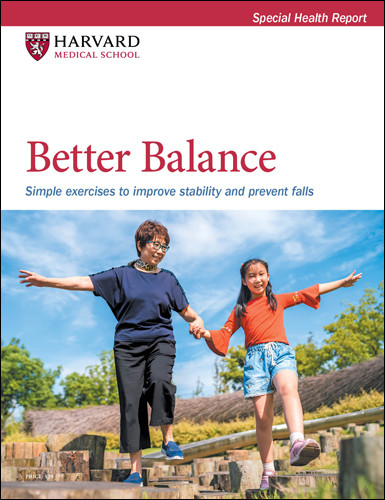Extra exercise may lead to a longer life
Research we're watching
- Reviewed by Deepak L. Bhatt, M.D., M.P.H, Former Editor in Chief, Harvard Heart Letter

Does exercising more than the federal guidelines recommend prevent more deaths from cardiovascular causes? A new study suggests the answer is yes — although the longevity gains are fairly modest.
The study, published Aug. 16, 2022, in Circulation, included more than 100,000 people who were followed over a 30-year period. Every two years, participants reported the average amount of time they spent per week doing moderate or vigorous activity. Examples of moderate activity included walking and calisthenics (such as jumping jacks and push-ups); vigorous activity included jogging, cycling, and swimming.
People who met the recommended goal of 150 to 300 minutes per week of moderate exercise (or 75 to 150 minutes per week of vigorous exercise) were about 20% less likely to die during the study period compared with those who didn't meet the goals.
Those who did two to four times the recommended amount of exercise improved their longevity by a few percentage points beyond those who just met the guidelines. Among the vigorous exercisers, mortality dropped by 21% to 23%, and for moderate exercisers, it dropped between 26% and 31%. Among all the regular exercisers, the biggest reductions were in death from cardiovascular-related causes.
Image: © Taiyou Nomachi/Getty Images
About the Author

Julie Corliss, Executive Editor, Harvard Heart Letter
About the Reviewer

Deepak L. Bhatt, M.D., M.P.H, Former Editor in Chief, Harvard Heart Letter
Disclaimer:
As a service to our readers, Harvard Health Publishing provides access to our library of archived content. Please note the date of last review or update on all articles.
No content on this site, regardless of date, should ever be used as a substitute for direct medical advice from your doctor or other qualified clinician.
















